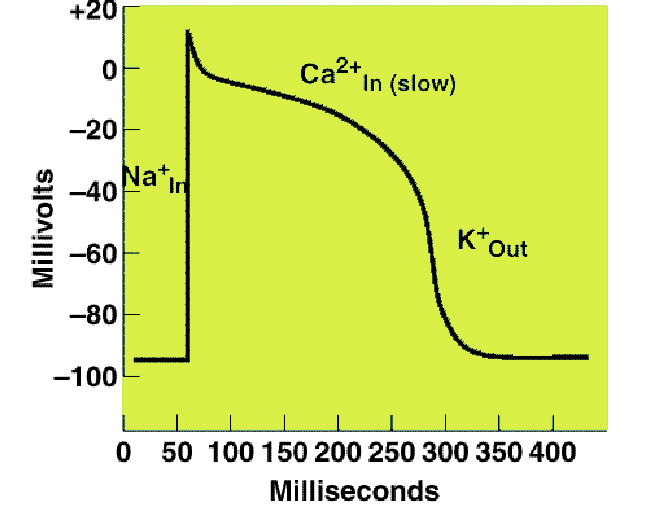Also in common with other muscle tissue, the depolarisation is due to the opening of the fast sodium channels.
The unique characteristic of cardiac muscle action potential is the plateau phase i.e. the maintenance of the potential at a positive level.
The plateau is the result of slow sodium/calcium channels that remain open for several hundred milliseconds.
The prolonged depolarisation ensures that the absolute refractory period (ARP) of the heart muscle cells is relatively longer than that of other muscle cells. This prolonged ARP results in the fact that the heart muscle cell can never be tetanised - important as for normal pumping action of the heart requires some diastole to fill with blood.
